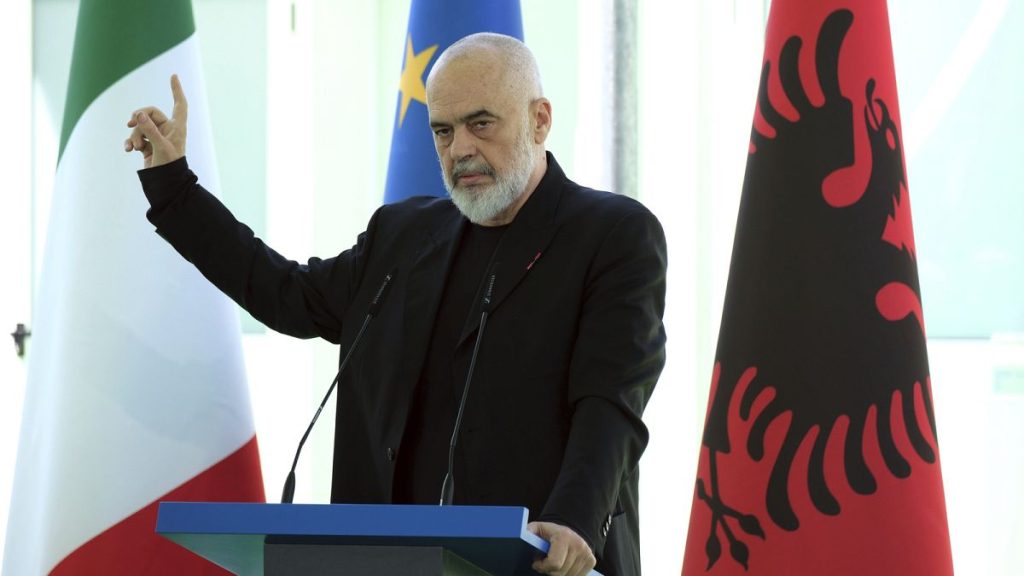Albanian Prime Minister Edi Rama has declared the country’s “unconditional love” for Italy, making Rome the exclusive partner to house asylum seekers on Albanian soil. Rama emphasized that this deal is exclusive to Italy and that other governments seeking similar arrangements should not look to Albania as a partner, citing their special relationship with Italy as the reason behind this agreement. The migration deal between Italy and Albania was struck based on a sense of responsibility as neighbors and Europeans, offering a pragmatic solution to the issue of asylum seekers.
Under the five-year agreement between Tirana and Rome, migrants intercepted at sea by Italian authorities will be transferred to reception centers near the Albanian port of Shengjin, where their asylum claims will be processed by Italian personnel. This arrangement only applies to migrants from countries deemed safe by Italy, with successful applicants granted asylum in Italy, while others will be repatriated. Despite delays in opening the centers, Italy aims to process up to 36,000 applications per year in Albania, with Brussels supporting the deal as falling outside EU law.
The deal between Italy and Albania has caught the attention of other EU member states and beyond, prompting 15 countries to urge the European Commission to consider similar models for outsourcing migration and asylum policy. Migration is a key issue on the political agenda across EU countries, with concerns over irregular arrivals leading to increased support for far-right parties. Germany’s migration commissioner has suggested using facilities in Rwanda, previously funded by the UK government, as part of a European plan for unauthorised migrants. Although the UK-Rwanda deal was scrapped, the UK has shown interest in the Italy-Albania protocol as part of a pragmatic approach to managing irregular arrivals.
The Italy-Albania protocol has received praise from European Commission President Ursula von der Leyen, who sees it as an example of innovative operational solutions to irregular migration. Despite concerns from human rights defenders about potential violations and legal limbo for migrants, the Commission supports the deal as a way for countries to address rising numbers of irregular arrivals. The new Commissioner-designate responsible for migration has been tasked with exploring similar operational solutions to manage irregular migration, which has become a pressing issue in many EU countries.
Italian Prime Minister Giorgia Meloni’s hard-right government’s efforts to crack down on migration have led to the Italy-Albania protocol, which offers a model for other countries looking to outsource asylum processing. The interest in replication of this deal has extended beyond EU borders, with the UK expressing interest in studying the protocol as part of a pragmatic approach to tackling irregular arrivals. With migration continuing to be a divisive issue across Europe and beyond, innovative solutions like the Italy-Albania protocol could play a crucial role in shaping the future of migration and asylum policy in the region.













